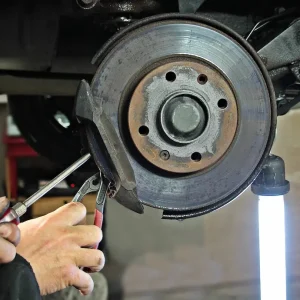‘Crash for cash’ appears to be hitting the headlines big time. The despicable practice of fraudsters deliberately making emergency stops at road junctions, slip roads and roundabouts to cause a deliberate accident is apparently on the increase, and it’s adding an average £44 on insurance premiums. Fleet cars are a prime target.
Interestingly, we had just written in our quarterly company car driver e-newsletter about an operation being run by the Metropolitan Police to catch criminal gangs preying on company car drivers by deliberately causing accidents in order to defraud their employer’s insurers.
Under the grand title of Operation Catcher, the Met is endeavouring to reduce the number of such offences by identifying when they happen and bringing the culprits to justice.
In the London area, the sting has a familiar pattern and is a subtle twist on the more traditional version of one car making an emergency stop and the driver then making fraudulent claims for fictitious injuries. This one involves the use of two cars.
The first car brakes suddenly or swerves to make the second stop, which gets hit from behind by the unsuspecting company car driver. Usually, the driver of the second car uses the handbrake to avoid alerting the company car driver of what is happening. While the first car makes off the driver of the second car starts ranting on about the actions of the first, so drawing some sympathy from the company car driver and distracting them from possibly thinking they have become the victim of a fraudulent sting.
Such practices, subtle and unsubtle, apparently are costing the British insurance industry some £350m per year, adding to the cost of vehicle insurance premiums and also delay the resolution of claims at known hot spots as further investigations are required.
The insurance industry has become so wise to the sharp practice that not only do they publish a list of the top towns and cities affected but can specifically highlight known stretches of roads. For information, be extra vigilant at Centenary Way, Trafford Park, Manchester; Harlingen roundabout off Junction 5 of the M65 and the Scotland Road roundabout off Junction 13 of the M65. These are the top three ‘crash for cash’ hot spots according to Direct Line.
In the last year, the number of ‘crash for cash’ fraudulent claims has risen by 30 per cent according to Keoghs, which investigates fraudulent claims on behalf of the British insurance industry.
Fleet vehicles are particular targets as company fleet policies are seen as easier prey.
‘Crash for cash’ is another headache for fleets and can add further costs to fleet operations as well as a potential requirement for additional driver training.
Never has ‘keep a safe distance from the vehicle in front’ been more applicable!
Follow BusinessCar on TWITTER





